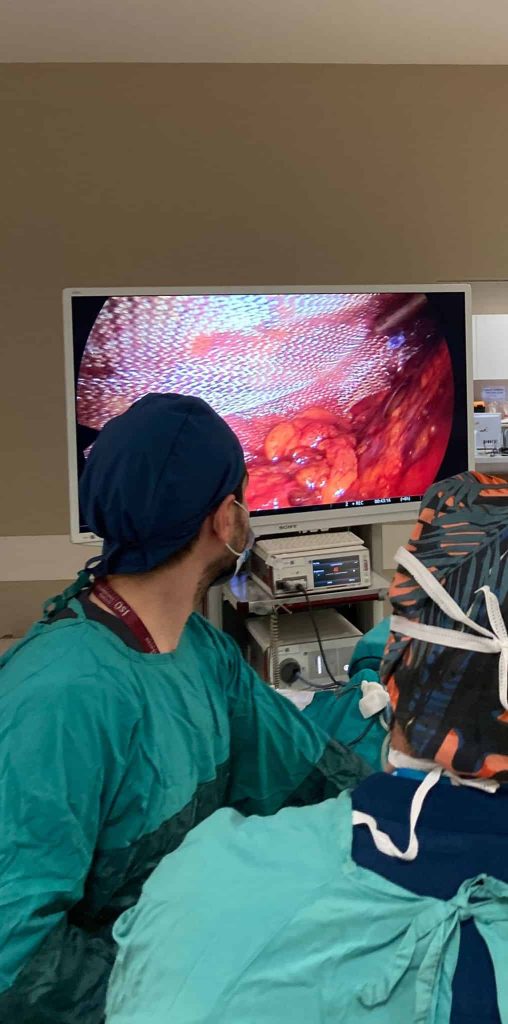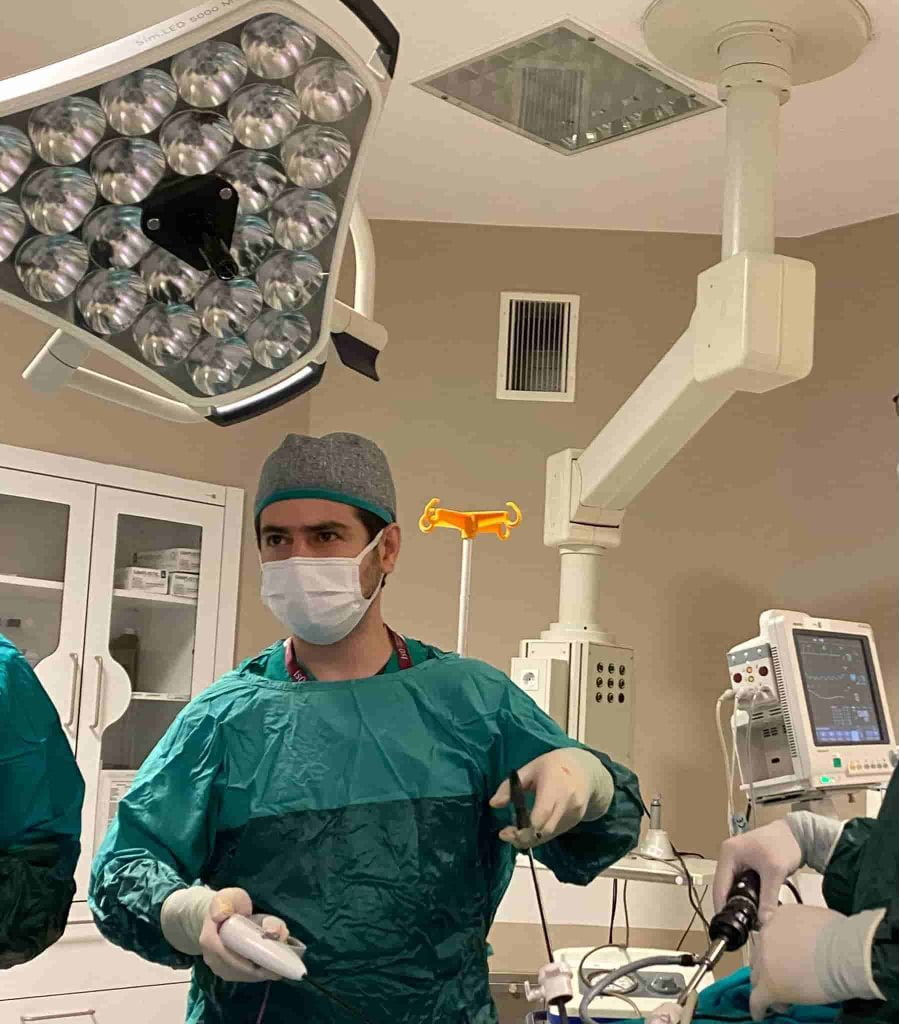If you’re thinking about the possibility of considering mini gastric bypass surgery, you may have wondered what this would mean for you. In this blog post, we’ll look at some important aspects surrounding mini gastric bypass, including experiences, costs and what this surgery actually is. Perhaps you have already heard about this type of surgery and would like to find out more. Or perhaps you are still unsure and are looking for more information to help you make an informed decision. Whatever your reason for being here, we hope to be able to help you with this article.


Mini Gastric Bypass Turkey
A mini gastric bypass is a surgical procedure used to treat obesity. The procedure is also known as sleeve gastric bypass or sleeve gastric omega bypass. It is a form of bariatric surgery in which the stomach is reduced in size and bypassed to limit the amount of food that can be ingested and reduce nutrient absorption.
In a mini gastric bypass, the stomach is turned into a small tube or pouch and the rest of the stomach is bypassed. This is done by connecting the small intestine to the small tube stomach. This shortens the transit of food through the small intestine and a smaller amount of nutrients is absorbed.
The mini gastric bypass is considered less invasive than other forms of bariatric surgery such as the Roux-en-Y gastric bypass. It is a laparoscopic operation in which only small incisions are made in the abdomen. As a result, the recovery time is usually shorter and the risk of complications is lower.
Mini gastric bypass experience
Mini gastric bypass is a surgical method of treating obesity. This type of surgery not only provides effective weight loss, but can also provide long-term health benefits. It is important to understand that each patient may have a different experience with mini gastric bypass.
Experiences with mini gastric bypass vary from person to person. Some patients report significant weight loss in the first few months after surgery. Others report improved energy, increased physical activity and an improved overall quality of life. However, it is important to note that the success of mini gastric bypass depends on many factors, including adherence to dietary and lifestyle changes.
Possible complications or side effects of mini gastric bypass may also occur. One of the most common side effects is dumping syndrome, in which food enters the intestines too quickly, causing uncomfortable symptoms such as nausea, dizziness and diarrhea. Other possible complications include infection, gastric stricture, stenosis or ulceration.
Another important point to consider is the cost of the mini gastric bypass. The costs can vary depending on the country, clinic and individual needs. It is advisable to thoroughly inform yourself about the various financing options and insurance options, as not all costs are covered by insurance companies.
Lifestyle changes required before and after surgery should also be considered. A proper and disciplined diet is essential to successfully lose weight and achieve long-term results. Regular exercise and physical activity are also important to maintain weight and improve overall health.
Overall, mini gastric bypass can be an effective option for patients with obesity who have difficulty losing weight the traditional way. However, it is important that potential patients carefully consider their options, weigh the risks and benefits, and thoroughly educate themselves about the procedure. A thorough consultation with an experienced surgeon can help make the right decision.

Mini gastric bypass costs
A mini gastric bypass is a surgical weight loss method used for people with obesity. Compared to a conventional gastric bypass, the mini gastric bypass is less invasive and therefore has a lower cost. However, the exact cost of a mini gastric bypass can vary depending on the clinic and individual situation.
The total cost of a mini gastric bypass includes various factors such as the hospital costs, the surgeon’s and anesthesiologist’s fees, the cost of pre- and post-operative visits, and the cost of medications and dressings.
It is important to note that the costs of a mini gastric bypass are generally not covered by health insurance and must therefore be borne by the patient. It is advisable to obtain precise information on the costs from the respective clinic in advance and to check possible financing options.
Mini gastric bypass surgery
A mini gastric bypass is a surgical procedure that is used to reduce weight. During this operation, the stomach is reduced in size and the small intestine is bypassed, limiting food intake and digestion. It is an effective treatment method for people who are severely overweight and for whom other weight loss methods have been unsuccessful. The mini gastric bypass is less invasive than the conventional gastric bypass and offers many advantages.
With a mini gastric bypass, the stomach is reduced to a size of around 15 to 30 ml. This leads to a quick feeling of fullness, as the stomach can hold less food. In addition, the first part of the small intestine is bypassed and food transport is directed to the later part of the small intestine. As a result, fewer calories are absorbed, which leads to further weight loss.
The mini gastric bypass also has several advantages over the conventional gastric bypass. Firstly, the operation is less invasive as only a smaller part of the stomach is bypassed. This means that the risks during and after the operation are lower. There are also fewer changes in digestive function, which means that the body can continue to absorb vitamins and minerals from food.
The cost of a mini gastric bypass can vary depending on the country and clinic. In Turkey, the costs generally range from around 3000 to 15,000 sterling. These costs include the operation itself, the preliminary and follow-up examinations, the hospital stay and aftercare. It is important to find out about the costs and possible financing options before the operation.
Advantages of Mini-Gastric Bypass
- Faster satiety: Due to the reduction in the size of the stomach, a faster feeling of fullness occurs.
- Weight loss: The reduction in stomach size and redirection of the small intestine lead to weight loss.
- Less invasive: The mini-gastric bypass is less invasive than the traditional gastric bypass.
Disadvantages of Mini-Gastric Bypass
- Risks and complications: Like any surgical procedure, there are risks and potential complications.
- Dietary changes: Post-surgery, dietary adjustments and long-term changes in eating habits are necessary.
- Long-term follow-up: Regular medical follow-up and support are required to maintain the success of the mini-gastric bypass.






